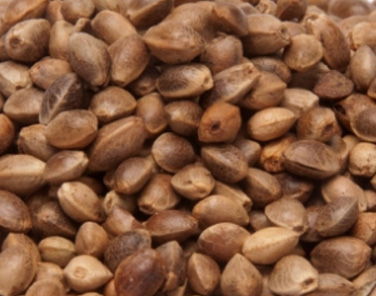
Breeders seek royalties to improve programs while constituents continue to face challenges in seed acquisition and regulation.
By: Abbie Marks
At a recent Seed Seminar hosted by Colorado Department of Agriculture, global wheat company Limagrain’s COO Frank Curtis explains how investing in seed genetics may be one of the most prominent and profitable avenues to pursue in the hemp industry today:
“U.S Wheat Market is not as healthy as people think.” According to market research, wheat production has increased globally in recent years, with a drastic decrease in U.S production.
Limagrain is the 4th largest seed distributor in the world. Curtis sees a great potential for the hemp industry in Colorado. He describes the importance of investing in a seed breeding program for quality genetics Given the steady decline of state and federal funding for seed genomic research, describes
“The best way to improve investment is to reward those who invest and innovate,” says Curtis, and one way to do that is by increasing royalty market value.
In the U.S, only 34% of funds invested in seed breeding is returned to the program in comparison to a high rate of return of 93% in the UK and explains how high return rates in royalties can expand a seed breeding program tenfold.
“This is an illustration of how implementing IP protection effects income and value.”
—Frank Curtis, COO Limagrain
Limagrain’s executive expresses the importance of working together to “illuminate brown-bagging” and build a stronger community of growers and seed breeders today, forming a greater foundation of opportunity for farmers in Colorado. He explains how without enforcing PVP and patent laws, international breeders are unlikely to invest in a U.S seed breeding market.
“Universities, ARS & Private Breeders need to work together to bring benefits to farmers. The Seed industry needs to support seed certification and sell certified seed, and growers need to buy seed.”
Although huge strides are being made throughout the hemp seed industry in Colorado and the U.S today, farmers and entrepreneurs still face many challenges and legal constraints surrounding the acquisition of viable, certifiable seed.
Hemp Business Journal CEO Sean O. explains how the .3% THC threshold for growing hemp in Colorado is “restricting the U.S. hemp industry as a whole.”
“Many advocates and industry experts regard 1 percent THC at dry weight as the more reasonable THC threshold, which provides a more reasonable breeding and cultivating framework for hemp.” – Hemp Business Journal
State legislation has accelerated the opportunity for hemp in Colorado for the agricultural sector and beyond, but farmers still face huge tackles in the hemp industry today.
All signs point to federal legislation in producing the economic results made possible by state pilot programs.
National Hemp Association, Vote Hemp, Hemp History Week, and Hemp Road Trip are just a few advocates rallying for the rescheduling of hemp.
Check out their organizations and see how you can get involved in bringing hemp to the U.S! Stop by the NoCo Hemp Expo on April 1-2 to hear from these leaders and more from all around the globe on the hemp seed market today.



